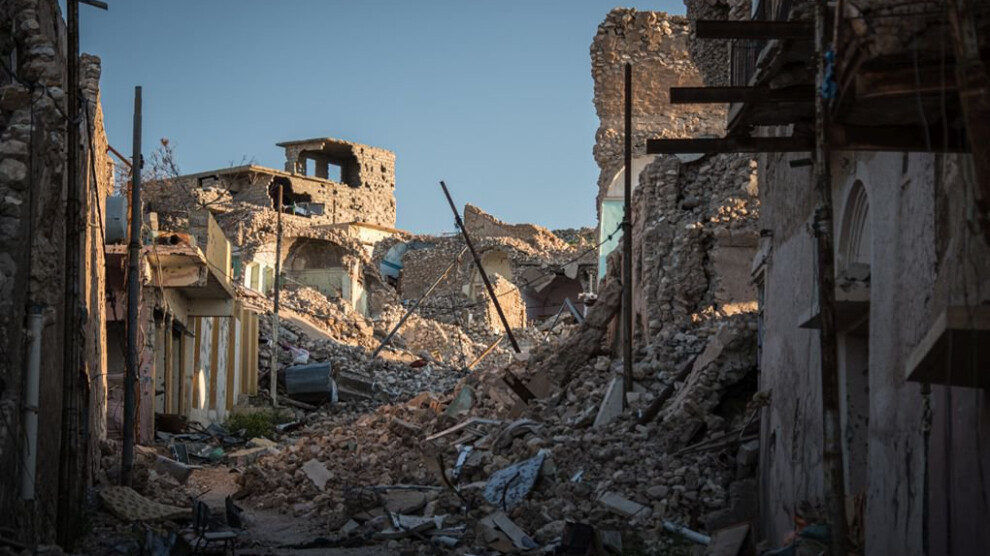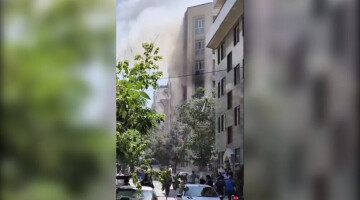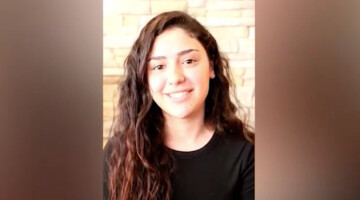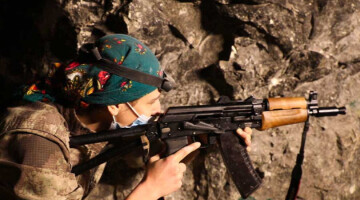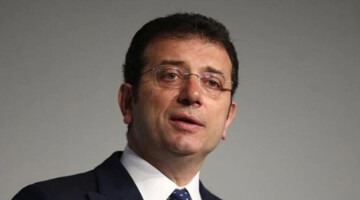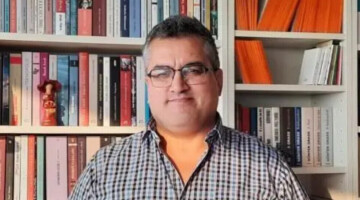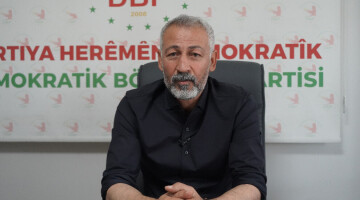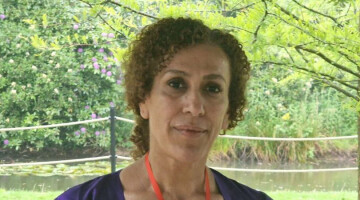In the aftermath of the July 15, 2016 coup attempt, Turkey changed its "counterterrorism" strategy to focus operations “at the source in situ" of perceived threats. The strategy has been applied particularly against the Kurdistan Workers' Party (PKK), as portrayed by frequent reports of high-ranking PKK members being killed in Syrian and Iraqi territory with the aid of Turkey’s intelligence networks as well as both armed and unarmed drones.
Yet, the same strategy does not seem to be applied to ISIS. The most recent operation of note by the authorities against ISIS was the capture and return of Kasım Güler from Syria on June 21, 2021. Güler had been appointed as the ISIS “governor” of Turkey. In his testimony, Güler said that after ISIS lost its territory in Syria, the group decided to reestablish itself in Turkey under the instructions of self-proclaimed Caliph and former ISIS leader Abu Bakr al-Baghdadi before he was killed.
Faced with the continued presence of ISIS cells within its borders, Turkey has been slow to respond to potential threats posed by the group, as well as inconsistencies in the judicial system’s handling of ISIS suspects and the plight of Yazidis still held captive by some ISIS members in Turkey. I have reported extensively on these topics and will highlight some trends below that are strikingly absent from the national discourse.
Yazidis held by ISIS in Turkey
Following the 2014 Shengal massacre in Iraq, Yazidi women and children continue to be held captive and sexually abused by ISIS members living in Turkey – and elsewhere – though their number remains unknown. ISIS members use the dark web to sell and purchase Yazidi women and children they kidnapped from Sinjar.
Several Yazidi families have somehow managed to reach out to children in ISIS captivity and secured their release without the involvement of police and other relevant authorities. Some Yazidi families pursue such resolutions out of fear that by cooperating with the authorities in Turkey, ISIS members may become aware of their actions and, in response, they may harm or kill the relative they seek to rescue.
So-called “secure intermediaries” emerge when an ISIS member attempts to sell a Yazidi on the dark web or communicates with the Yazidi families seeking to “buy” their relative’s freedom. The intermediaries’ profile often involves criminal activity, such as drug trafficking, extortion, battery, and ISIS membership starting from 2011-2012, though they usually did not fully adapt to rule under the extremist group. These criminals would then return to Turkey through illegal routes with “war plunder” (such as a Yazidi woman or girl).
Exchanges normally begin with the secure intermediary taking a captive woman or child from the home of an ISIS member. After changing vehicles a few times to avoid detection, the woman or child is brought to a previously designated location. The woman or child is then handed over to their families. Payments to ISIS members are made by the victims’ families, mostly in cryptocurrencies. Sometimes the Iraqi Embassy in Ankara steps in and prepares travel documents for the rescued Yazidis to return to Iraq.
Rescue operations I’ve covered
In 2018, an Iraqi Turkmen, who was also a high-ranking ISIS member (with the rank of emir) from Tel Afar, rented a flat in Ankara’s Keçiören district. The apartment building was located on a street behind the local police station. The emir moved in with his wife, their four children and an enslaved Yazidi woman, who was 14 years old at the time of her capture by ISIS in 2014.
She became pregnant after being raped by the emir and gave birth. During this time, the emir frequently traveled back and forth from Iraq. The person who located the Yazidi woman was her brother, who, after years of effort, was able to track his sister’s journey from Mosul to Ankara. He discreetly photographed his sister with her 8-month-old baby on one of the rare occasions they left the flat.
He then went to the police with the information he had gathered. This led to the police detention of the ISIS emir and his wife, though they were released on the grounds of "lack of complaint." However, the existing evidence of kidnapping, torture and rape was sufficient to initiate a public trial.
In another case in Ankara’s Sincan district, a 24-year-old enslaved Yazidi woman was rescued after her relatives in Australia (who themselves are asylum-seekers) purchased her on the dark web. The woman was held captive in a house in Sincan for 10 months and systematically raped. Signs of torture in the form of cigarette burns and razor cuts were found on her body.
According to what I learned from the Yazidi community, this was actually the second time she had been sold. In 2018, her photo was posted online on a virtual slave market and she was sold within about an hour. The buyer was an Iraqi Turkmen ISIS member located in Mosul at the time.
This person, who frequently traveled to Turkey, brought the enslaved Yazidi woman along with his two wives and four children to live in a flat in Sincan. In 2020, a payment for her release was made in Iraq and the woman was handed over to secure intermediaries in Ankara.
A separate rescue effort took three years to complete. Hadiya Hussein Zandinan was pregnant when she was captured during the ISIS invasion of Sinjar in 2014. Two years later, Hadiya and her daughter were put up for sale on the dark web and her relatives paid about 17,000 USD to secure their release.
Once free, Hadiya set out to learn the fates of her abducted son, husband, mother, father and three siblings. In 2017, two of her siblings were tracked down in Kırşehir. When an Iraqi Turkmen woman went to register two children, aged 9 and 11, the official suspected she was not their mother and launched procedures that led to the involvement of Iraqi Embassy officials.
The children were subsequently identified as Yazidi and placed under state protection. In addition, the Iraqi Embassy registered the children and their photos with organizations that help families find missing Yazidis. Hadiya recognized the two children as her brothers and, despite traveling to Kırşehir, was unable to be reunited with them due to legal barriers.
A DNA test –required for Hadiya to obtain legal guardianship– showed a match, but authorities required Hadiya to produce evidence that the parents of the siblings were deceased. The procedures initiated a legal battle that spanned three years, and the story was translated into various languages, gaining international attention.
Finally, with political intervention, President Recep Tayyip Erdoğan handed the children over to Nechirvan Barzani, President of the Kurdistan Regional Government, in Ankara on Sept. 4, 2020.
In yet another case, a seven-year-old girl was put up for sale on the dark web in February 2021. The online advertisement was removed after about five minutes. Police tracking various illegal activities on the dark web posed as the child's family and offered a high payment. Meanwhile, the cybercrime unit identified the location of the IP address. The child was rescued from an address in Ankara’s Keçiören district and ISIS suspects were taken into custody.
Jihadist returnees from Syria
In addition to their captives, is the presence of ISIS militants themselves. A decade ago, people from around the world who sought to join a jihadist struggle and did so by joining ISIS, often used routes through Turkey and into Syria. Following the group’s geographical defeat in 2017, the same routes were used in reverse.
Returning jihadists and ISIS sympathizers from Turkey were among the main supporters of Syrian and Iraqi militants. This support, along with other aid, facilitated the sheltering and housing of many Iraqi and Syrian militants in Turkey.
Currently, ISIS members that have returned are residing in the Turkey provinces of Antakya, Batman, Bursa, Diyarbakır, Gaziantep, Kayseri, Kırşehir, Konya, Yalova and Yozgat, with the largest groups in Ankara and İstanbul, according to data found in indictments and based on publicly available information regarding the location of where counterterrorism operations targeting ISIS are carried out.
Ankara's Çubuk, Sincan and Pursaklar districts, along with the neighborhood of Saray have become popular areas to reside among foreign ISIS members. These districts and neighborhoods also host outlawed schools that provide education in line with jihadist values.
Furthermore, Kırşehir is the city of choice for the close relatives and staff members of slain former ISIS leader al-Baghdadi. Although security forces often carry out counterterrorism operations in Kırşehir, a sizable ISIS presence remains in the city.
In İstanbul, ISIS members have also found shelter in conservative districts. According to Interior Ministry statements, almost all ISIS members detained during counterterrorism operations in İstanbul have been Iraqi or Syrian citizens.
Wives and children
It is common knowledge that the wives and children of Free Syrian Army (FSA) members live in İstanbul’s Başakşehir district and it is no secret that FSA fighters have settled in İstanbul, as well as other cities, and received citizenship of Turkey. Many of the Syrian and Iraqi FSA fighters based in Turkey make their living by engaging in human smuggling.
These smugglers provide one of few remaining options for families wanting to bring their daughters, daughters-in-law and grandchildren into Turkey informally, without registering them in the legal system. Grandparents and families desperate to retrieve their relatives from the al-Hol and al-Roj detention camps run by the Syrian Democratic Forces (SDF), pay FSA members between 40,000-50,000 euros to smuggle them out, according to my reporting.
Many grandparents living in Ankara and İstanbul have brought their daughters and grandchildren to Turkey through these smuggling networks. Through my reporting, I maintain contact with such families and have met relatives who entered Turkey through such means. When I visit these families, I observe returnee children don’t want to remove the white, entari-style robe that they have grown up wearing under ISIS-rule.
I’ve also witnessed such children playing with large kitchen knives and acting out mock hangings, with one putting a cord around another’s neck. In face-to-face interviews with their mothers, I ask whether they receive psychological support for their children, who were subjected to ISIS military and religious education.
Neither the mothers nor the children receive any psychological treatment or support and continue to live highly private lives cut off from the wider society.
Counterterrorism ops tend to target foreigners
Despite rolling counterterrorism operations carried out against ISIS on a monthly basis and media reports of alleged members being detained, there is little information with regards to how many militants caught in such operations are then prosecuted. In the event where an alleged ISIS member is prosecuted and convicted, quite often their legal defense team will make use of the effective remorse clause in the Turkish Penal Code, which lowers the duration of their prison sentence.
Some defendants are able to return to their regular lives with only judicial controls being applied. Many ISIS members that have utilized the effective remorse clause go on to live relatively quiet lives in their neighborhoods, operating or working in small businesses. Such counterterrorism raids and legal procedures do not prevent ISIS members from sheltering, transferring money and smuggling people.
When examining the nationality of those detained in counterterrorism operations, the vast majority turn out to be foreign nationals, predominantly Iraqi, Syrian, Turkmen and Kazakh. In contrast, ISIS members with citizenship of Turkey generally remain undisturbed and live under the radar unless police are tipped-off or there’s a report in the press.
'High-ranking' ISIS members in Ankara
Looking deeper into inconsistencies with legal procedures, a secrecy order was placed on the indictment against the ISIS members who brought the seven-year-old Yazidi child described above to Turkey and put her up for sale.
I managed to obtain a copy of the indictment and found all three suspects –believed to be ISIS members– had been released. The indictment stated that Iraqi citizens Anas V., Sabah A. H. O. and Nasser H.R. worked under Jabbar Salmman Ali Farhan Al Issawi, who was known as a figure close to slain former ISIS leader al-Baghdadi.
The indictment referred to the three released men as "senior [terrorist] organizational leaders" and included information that Anas and Nazir were in charge of a ‘Prisoners' Court’ in Fallujah. All three alleged ISIS members are currently residing in Ankara and are on probation.
Seeking out an interview, I recently went to the house of Sabah A.H.O., who lives in the Şentepe neighborhood of Ankara. He refused. He works as a shopkeeper in the neighborhood.
Between June 2021 and August 2022, at least four more Yazidi women (two of whom have been made public) were put up for sale by ISIS members in Turkey, according to my reporting. All were bought and returned to their families in Ankara and subsequently left the country.
Judging by police bulletins and the statements of Interior Minister Süleyman Soylu, Turkey does not let ISIS move a muscle as dozens of alleged members are detained each month. For some reason, however, these raids do not prevent ISIS members from sheltering, transferring money and selling people within Turkey.
"This report was published on Bianet and produced by Turkey recap with support from the Heinrich Böll Foundation in Turkey and the IPS Communication Foundation."
Ruins of Shengal, pictured in April 2016, following the city’s liberation from ISIS. (Photo: Diego Cupolo)

